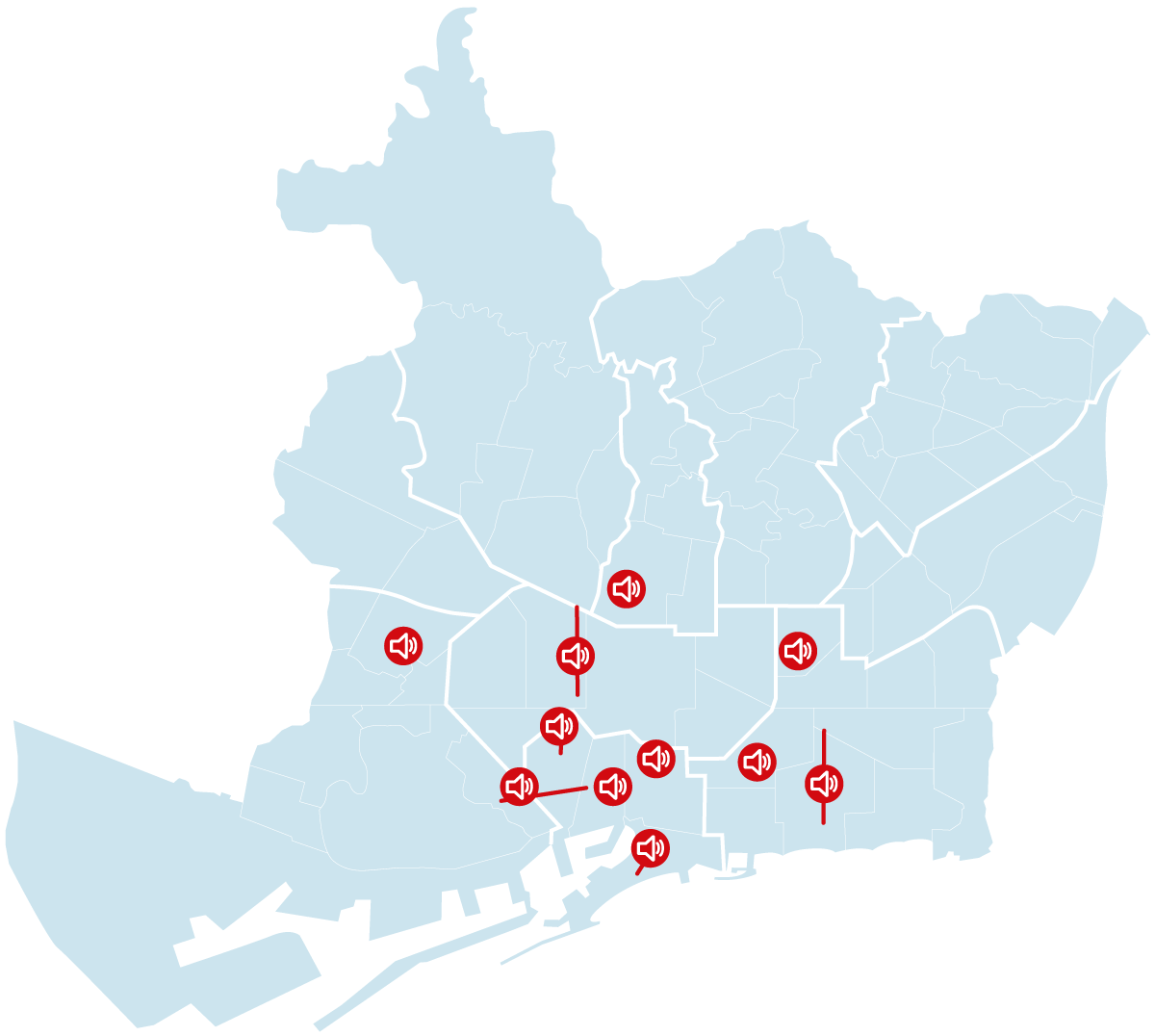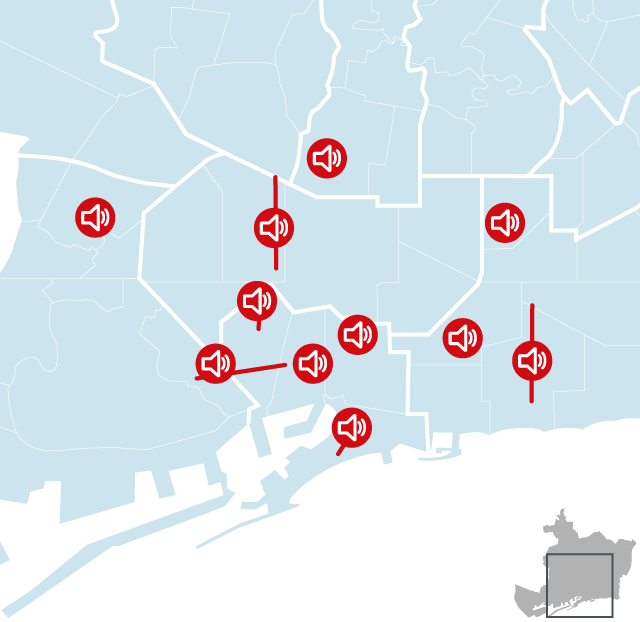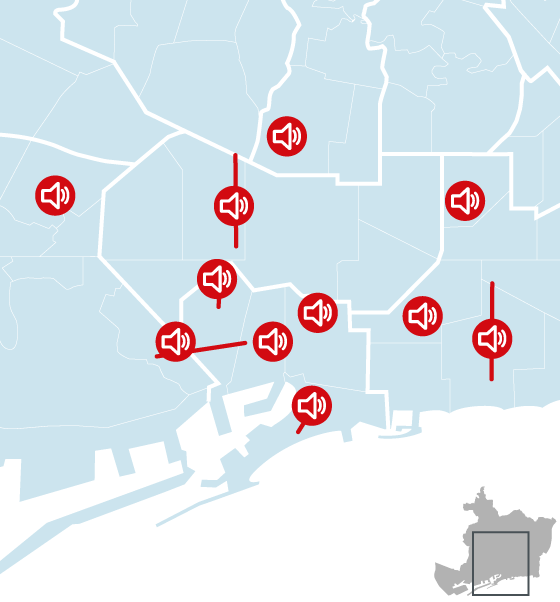Plan to reduce noise in 11 critical points of Barcelona's nightlife
Traffic is main source of noise pollution in the city as a whole

BarcelonaOver 210,000 Barcelona residents suffer intensely from noise pollution in the city (with severe psychological, emotional and social effects) and over 60,000 have serious sleep disorders due to exposure to traffic. Noise is, in fact, the second environmental factor that has the greatest impact on the population's health after air pollution, according to data from the Barcelona Public Health Agency, which also warns that traffic is responsible for around 300 new cases of ischemic heart disease and 3% of deaths: about thirty each year in Barcelona.
To address this, the City Council will promote a set of actions contained in the Plan of Measures against Noise Pollution 2022-2030, which were presented this Thursday by the Councillor for Climate Emergency, Eloi Badia, and the Councillor for Health, Gemma Tarafa. "Noise exposure can have and has a not minor impact on health. It generates losses in quality of life," remarked Tarafa,
Although background noise from car traffic is the most widespread source of noise pollution – over half of residents are exposed to decibels equal to or higher than those considered harmful by the WHO both during the day (53 dB) and at night (45 dB) – coexistence problems flare up at night in areas with a lot of nightlife, such as Gràcia squares, Enric Granados street or Poblenou's so-called triangle lúdic. According to public perception, this is one of the main sources of nuisance.
In this sense, the City Council has created special zones to allow the districts to develop noise reduction plans associated with nightlife adapted to each case. "After approving [their creation] in the May plenary, we will collaborate with the players in these areas to study what is happening. We intend to place sound meters in June and check whether these areas exceed permitted limits by three decibels," Badia explained.
Eleven zones to be taken into account
There are no surprises in the list: 11 locations, ranging from the three mentioned above as examples to the George Orwell square in the Gothic Quarter; Joaquim Costa street in the Raval; almirall Churruca street in Barceloneta; Rogent street (Camp de l'Arpa del Clot); Rambla del Poblenou, l'Allada Vermell street (Sant Pere i Santa Caterina), and Nou de la Rambla street, which goes from the Rambla to Poble-sec or Osca square, in Sants. "We want to focus on those people who are subjected to a noise intensity that is bad for their health," said Tarafa.
The project will also provide grants for residents in these areas to better insulate their homes. Council measures against noise will focus on three aspects: the noise source (prevention), the propagation path (mitigation) and the noise receiver (protection).
In the first case, the proposals include reducing the use of private vehicles, as already envisaged in the Urban Mobility Plan; a pilot test with acoustic radars, which will be launched this summer; reducing the speed limit to 30 km/h; setting up more pedestrian areas, or establishing sound limits when there are concerts in the street. Awareness campaigns and sound limits in some venues are also planned. In the chapter on mitigation, the plan presented today by the municipal government foresees proposals such as building walls, screens and tunnels in certain areas –as was done with the new Glòries tunnel, which has led to an 11-decibel reduction in the square, paving with sound-reducing asphalt or protecting areas of special acoustic quality such as Montjuic or the Laberint d'Horta.
If the focus is placed on the receiver of the noise, solutions are proposed such as continuing to reduce traffic near schools (the goal this year is to reach 200 schools), extending aid for the insulation of houses or incorporating acoustic criteria in all urban plans.
What will be maintained is the information campaign carried out every year during the summer to raise awareness among people leaving bars or gathering in squares, under the slogan "At night, respect". From June 3 to September 25, a total of 48 informers will be deployed in all districts. "Our goal is that we can have a much quieter, more peaceful, friendlier city," Badia said.



